
Soda Can Kill Rats
It’s true that rats can’t belch, but the old story that you can use a carbonated beverage, like soda, to kill them is false. There’s not enough carbonation to affect a rodent. Professional exterminators do not recommend using it as a strategy for getting rid of rats. In fact, it can have the opposite effect. Sweet, sugary sodas can actually attract rodents to your house, so do yourself a favor and leave that Coca-Cola in the cooler.
Caffeine is certainly harmful for rats, too, but a rat would have to drink near a full 12-ounce can of soda to have serious consequences. Rodent traps or an exterminator are still the best way to get rid of rats in your home. Here are some of the best rat traps to help you get started with the pest eviction process.

Major Cities Have a 1-to-1 Ratio For Rats to People
This plays off another thought that people are never more than a few steps away from a rat, which is simply impossible. The myth comes from a study published in 1909 in England. W.R. Boelter conducted the study and came up with a guess that England had one rat per acre of cultivated land. England had 40 million acres of cultivated land and a population of 40 million at the time, so it fit that there’d be one rat to every person.
Recent estimates say that the rat population of New York City is about 25 percent of the human population, dispelling the myth in the Big Apple. These happen to be the most rat infested cities in America and—spoiler alert—New York is not the #1 most rat infested U.S. city.
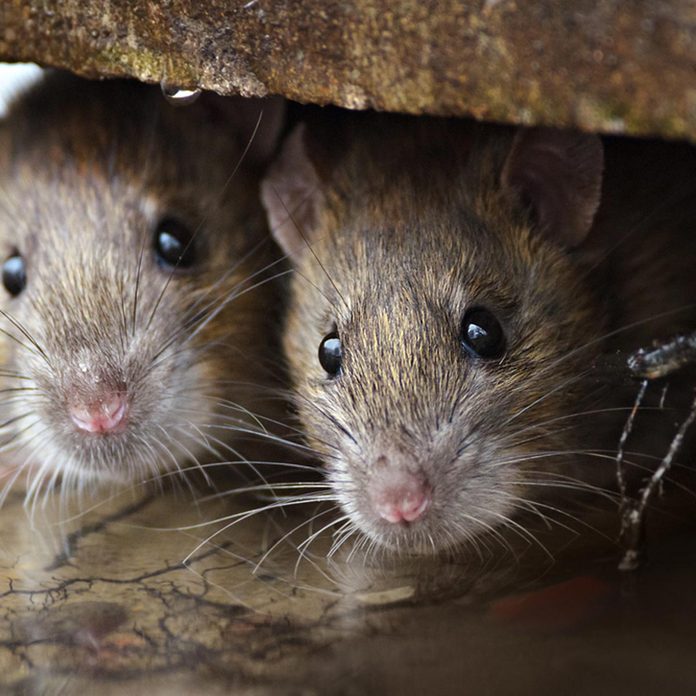
Rats are Mean
Rats are rarely aggressive. While rats may get into squabbles with fellow rats over territory or food, rats rarely become aggressive toward humans, unless they are provoked.
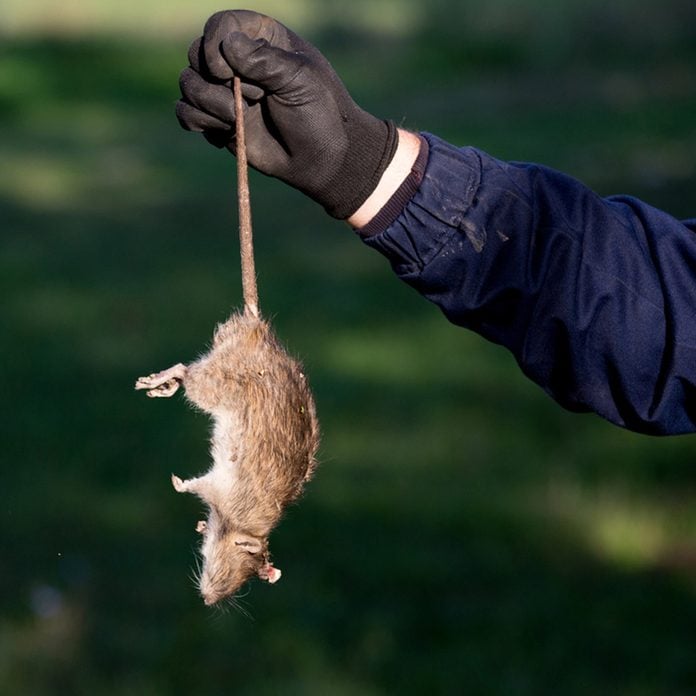
Rats and Disease
Despite what you’ve likely heard, rats didn’t cause the Bubonic plague. More recent studies point to fleas and lice, which were also carried by humans, spread the plague. However, rats can carry rabies.

Rats Aren’t Good Pets
Of course, the concept of what makes a good pet is all a matter of opinion, but some people find rats make ideal pets because they are easy to care for and they are quick to train. Rats are also intelligent, take up little space and don’t require as much money for upkeep.
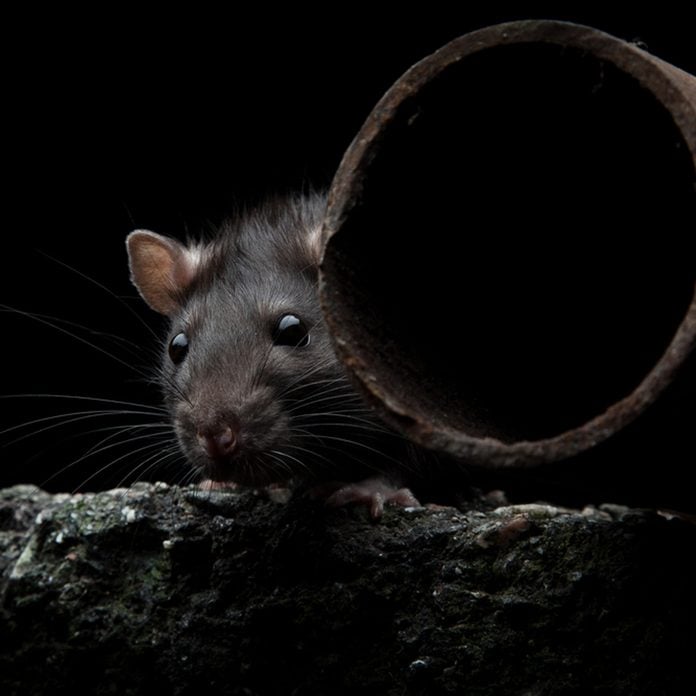
Rats Are Dirty
Rats can surely be a little dirty, but they aren’t any dirtier than other animals. If you have one as a pet, you’ll find that a rat’s personal hygiene is on par with that of a domesticated cat or dog.
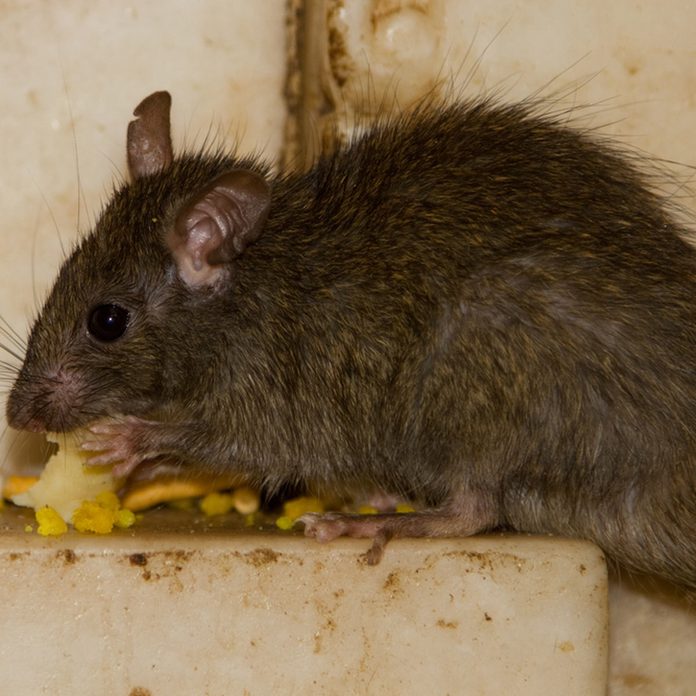
Rats Eat Anything and Everything
A rat isn’t a living garbage disposal. Rats are like any other animal in that they certainly have preferences when it comes to food. For those who keep rats as pets, rat nutrition is a hot topic as rats can suffer from diabetes and obesity, just like cats and dogs. Rats will eat grains, seeds, nuts, fruits and vegetables in the wild, as well as smaller animals and insects. They’ve been known to each trash, compost and pet food, too. So, you will want to keep the lids on your trash cans and make sure there’s not food or other liter laying around to attract rats and other rodents.
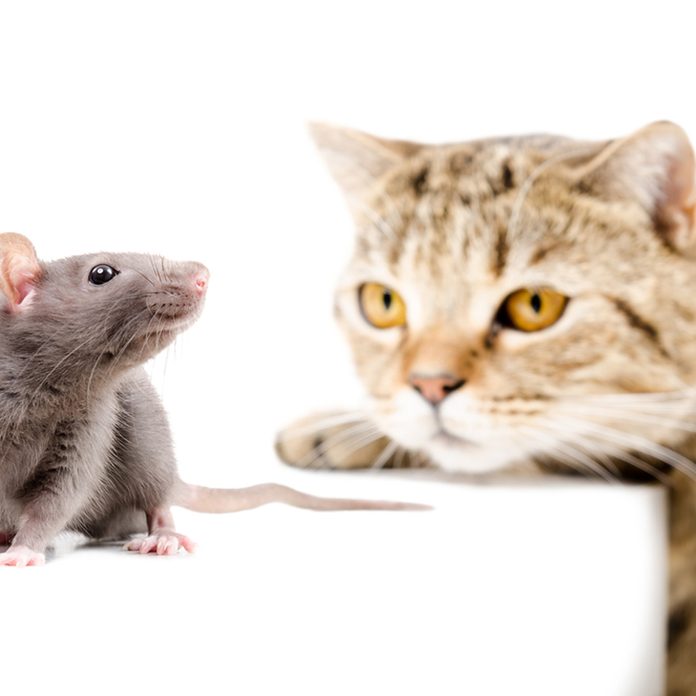
Rats Grow as Large as Cats
Rats may seem large, but most rats rarely weigh more than a pound. On average, domestic cats weight 8 to 12 pounds.
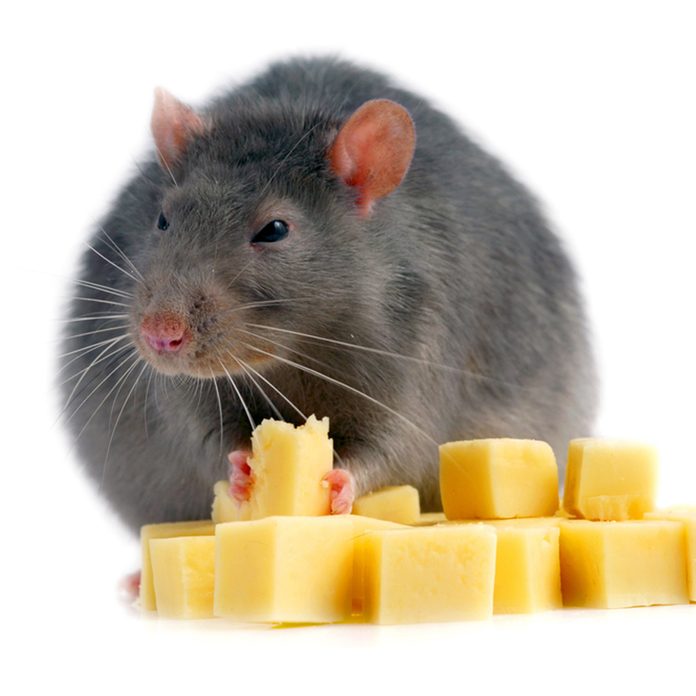
Rats Can’t Eat Cheese
There is a myth out there that rats can’t eat cheese, though it seems counterintuitive since mice seem so fond of it. Rats are like humans in that some of them are lactose intolerant. While some rats may not eat cheese, others may think of it as their favorite treat. However, the mold in blue cheese is toxic to them.
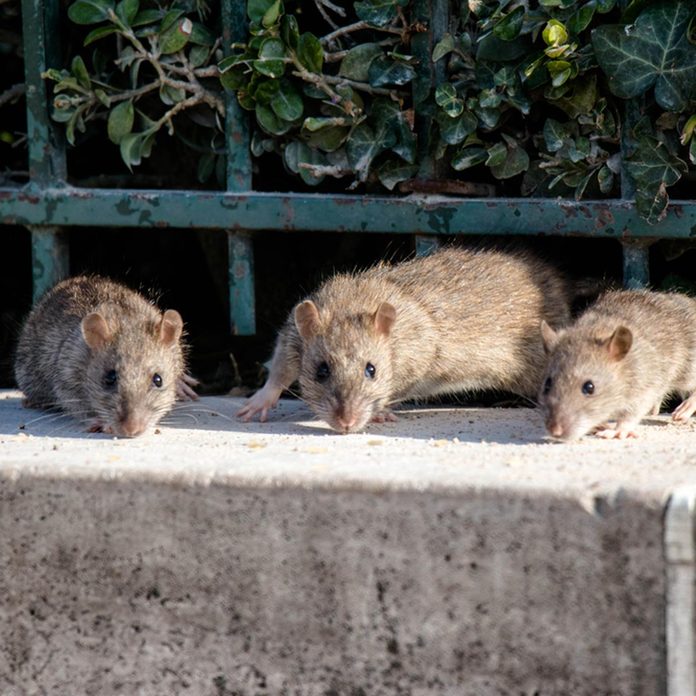
Rats Smell Bad
It is true that male rats can be smellier than female rats, but rats clean themselves and their odor isn’t usually a problem. If you have a pet rat, just remember to clean its cage regularly.
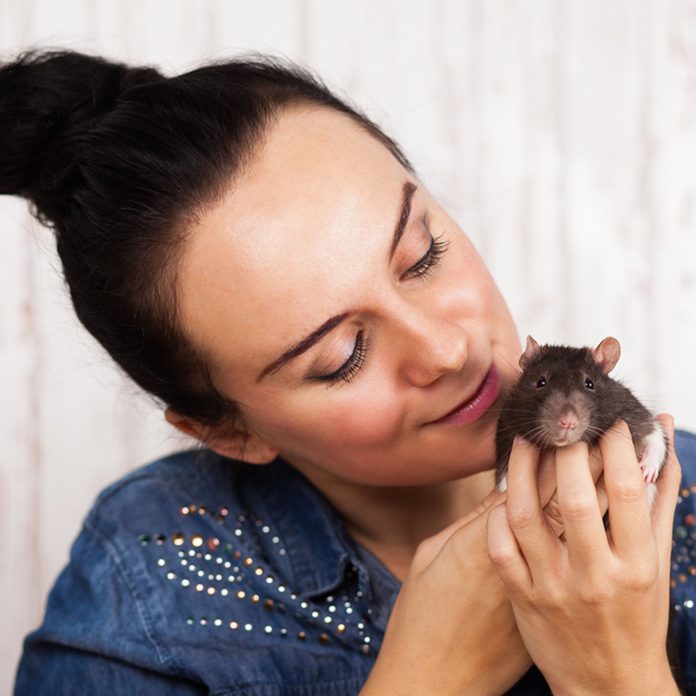
Rats Don’t Show Affection
Rats are social animals, so they can show affection just like many other domesticated animals. You may be surprised to find that pet rats will crawl up on your lap and chatter to show their love.
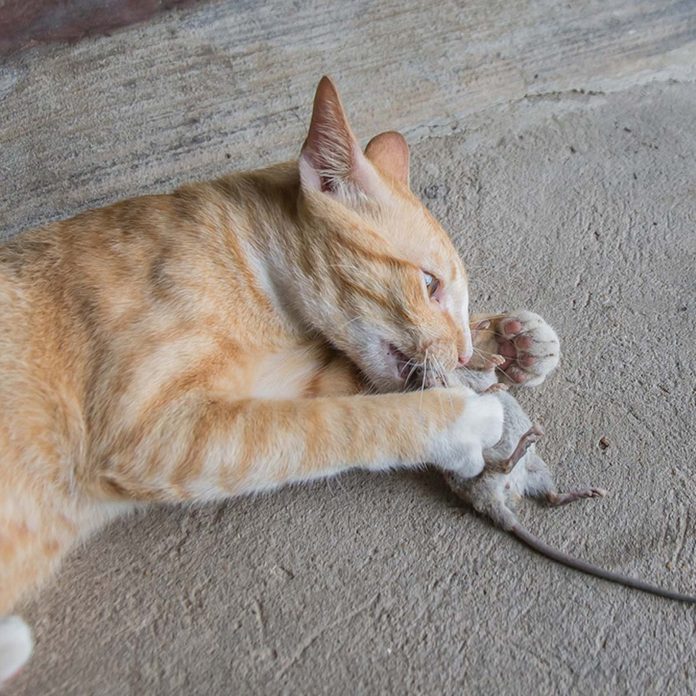
Cats Control the Rat Population
While cats may be experts at keeping the mice population under control around your home, rats can put up too much of a fight for most domestic house cats. Plus, rats often hide in spots that aren’t accessible to cats, such as in sewers and in tight spaces under porches.
